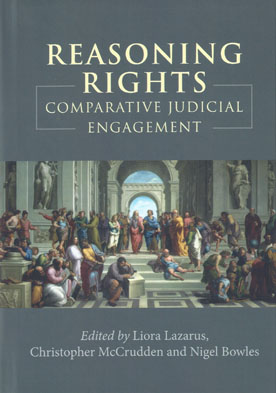We will be closed from 5pm Thursday 17th April for the Easter Bank Holidays, re-opening at 8.30am on Tuesday 22nd April. Any orders placed during this period will be processed when we re-open.

This book is about comparative reasoning in human rights cases. The aim is to explore the question: how is it that notionally universal norms are reasoned by courts in such dramatically different ways? What is the shape of this reasoning; what techniques are common across the transnational jurisprudence; and what are diverse?
The book, comprised of contributions by a team of world-leading human rights scholars, moves beyond simply addressing the institutional questions concerning courts and human rights, which too often dominate discussions of this kind, seeking instead a deeper examination of the similarities and divergence in the content of reasons being developed by different courts when addressing comparable human rights questions.
These differences, while partly influenced by institutional issues, cannot be attributable to them alone.This book explores the diverse and rich underlying spectrum of human rights reasoning, as a distinctive and particular form of legal reasoning, evident in the case studies across the selected jurisdictions.